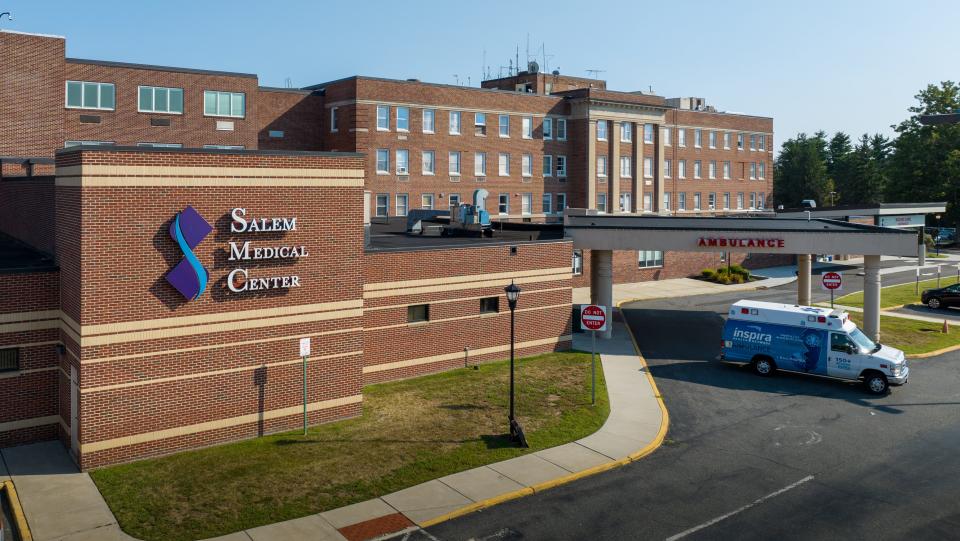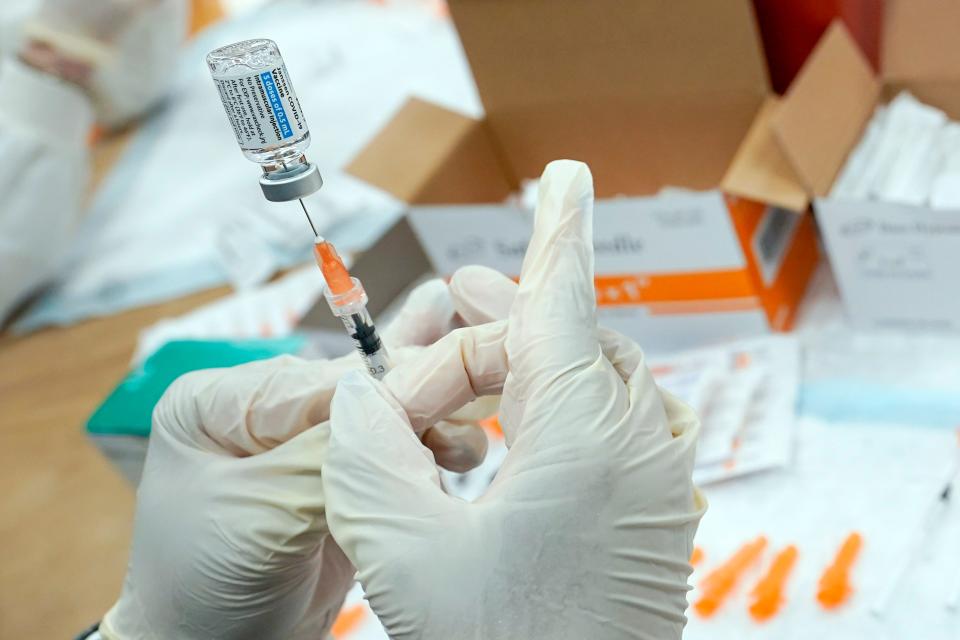A NJ hospital mandated flu shots. Workers charged discrimination. The hospital will pay
New Jersey’s Inspira Medical Centers, Inc., has agreed to pay $100,000 after six employees charged that a mandatory flu vaccination policy discriminated against their religious beliefs, the U.S. Equal Employment Opportunity Commission announced Wednesday.
No lawsuit was filed by the federal agency. However, five employees covered by a conciliation agreement would receive compensatory damages, the EEOC announced.
The sixth employee was not included in this agreement, according to an EEOC spokesperson.
Companies must provide “reasonable” accommodations for religious beliefs, wrote the U.S. Equal Employment Opportunity Commission, citing Title VII of the Civil Rights Act of 1964.
More: At Head Start, federal judge permanently ends COVID vaccine mandate for staff
As part of the agreement, the company was required to change its policies to “explicitly provide employees an exemption to the policy because of an employee’s sincerely held religious beliefs.” Inspira must also inform all employees of this change, and grant reasonable religious accommodations to its vaccination policies unless this would impose an “undue burden” on the company.
Here’s what we know about the case, and other cases involving mandatory vaccines.
Why didn’t Inspira offer religious exemptions for vaccination?

The issue arose after a 2020 New Jersey law requiring hospitals in the state to vaccinate all employees against influenza by Dec. 31, 2020.
The law required medical exemptions, but did not mention religious exemptions. Inspira then altered its previous vaccination policy to not include religious exemptions, in its attempt to comply with the New Jersey law, according to the EEOC announcement. Employees filed charges with the EEOC in 2020.
Whatever the state laws, the federal government requires “reasonable” religious accommodations at workplaces, said EEOC spokesperson Terrence W. Carr.
“State law does not trump federal law,” Carr said.
In a statement, Inspira thanked the EEOC for their handling of the case, and said they've revised their vaccination rules.
“We have since revised our policies in recognition of true and genuine observance of faith as it pertains to the practice of immunization,” wrote Inspira in a statement. "No employees who followed our medical or religious exemption process was terminated over their flu vaccine status.”
Do any major religions forbid vaccination?
Very few organized religions explicitly reject vaccination.
A small number of Christian denominations have voiced objections to vaccination, including Dutch Reformed Congregations, and faith healing congregations such as Faith Tabernacle, Church of the First Born, Faith Assembly and End Time Ministries, according to a survey by the Vanderbilt University Medical Center.
But … it’s complicated.

Some vaccines are produced with the help of cell lines descended from fetuses that were legally aborted decades ago, including the Johnson & Johnson COVID vaccine — though the vaccine itself contains no fetal cell material. The Vatican called the J&J vaccine "morally acceptable," and Pope Francis called getting vaccinated for COVID-19 “an act of love.” But some U.S. Catholic bishops advised followers to get Moderna or Pfizer vaccines instead.
No flu vaccine on the market was grown with the help of fetal cell lines, according to a survey by the Children’s Hospital of Philadelphia.
Vaccines for chickenpox, rubella, hepatitis A and rabies may be grown with the help of fetal cell lines, according to the hospital.
So if their church doesn’t forbid vaccines, can an employee cite religious objections?
Hoo boy, now we’re getting complicated.
There’s no simple legal test, wrote attorney Mark Wojcik in an article for the American Bar Association in 2022.
“Each claim for a religious exemption must be evaluated on its individual merit,” Wojcik wrote.
In a 2013 case in Ohio, Chenzira v. Cincinnati Children’s Hospital, a court ruled that veganism may qualify as religious belief under federal law, after an employee refused a flu vaccine that contained constituents of chicken eggs. Other courts have ruled that veganism does not constitute a religious belief.
However, wrote Wojcik in the ABA article, the religious exemption should apply only for “sincerely held religious beliefs and practices, not for suddenly held beliefs invented merely to avoid vaccination.”
Have organizations been sued over religious discrimination after requiring COVID or influenza vaccination?
Boy, have they!
In Illinois, evangelical Christian legal organization Liberty Counsel filed a religious discrimination lawsuit against NorthShore University HealthSystem’s mandatory vaccination policy. The organization called their suit “the nation’s first classwide lawsuit for health care workers over a COVID shot mandate.”
NorthShore University HealthSystem agreed to pay more than $10.3 million in a 2022 court settlement, and revised its policies to allow case-by-case religious exceptions.
In December 2022, the EEOC filed suit against Children’s Healthcare of Atlanta, Inc. after an employee was allegedly terminated for refusing flu vaccination on religious grounds.
A group called Feds for Medical Freedom has filed multiple lawsuits against the Biden administration over mandatory vaccinations, on grounds that have included religious discrimination.
In March 2023, the U.S. Fifth Circuit Court of Appeals upheld an injunction blocking the Biden administration from requiring federal workers to receive COVID-19 vaccinations.
Matthew Korfhage is a Philadelphia-based reporter for USA TODAY Network.
This article originally appeared on USA TODAY NETWORK: NJ Inspira settles religious EEOC complaint over mandatory vaccines

